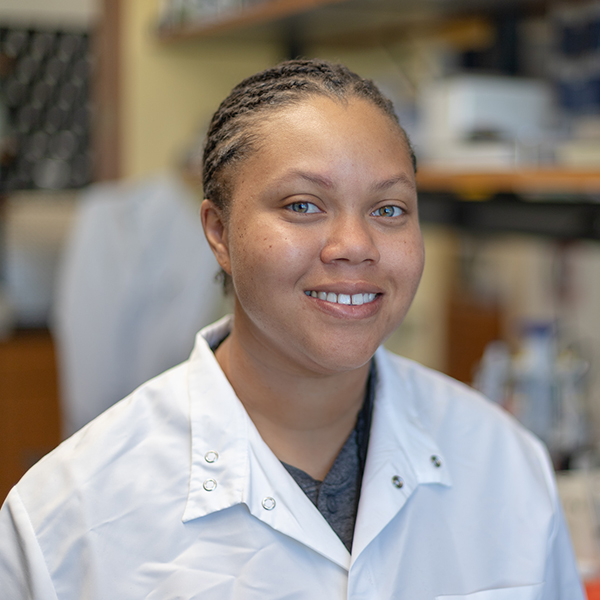
From goji berries to green tea, antioxidant rich superfoods are celebrated for protecting against cancer-causing free radicals. But what is the role of free radicals—and the process of cell metabolism that produces free radicals—in patients who have already been diagnosed with breast cancer? USC Stem Cell postdoctoral fellow Ebony Flowers will address this question with support from a prestigious fellowship from the A.P. Giannini Foundation.
Since 1945, the foundation has awarded fellowships to more than 700 postdoctoral researchers at medical schools throughout California. These fellowships provide up to three years of support for projects that aim to prevent and cure human diseases.
As a postdoctoral fellow in the laboratory of Min Yu, Flowers is probing cancer cell metabolism, which supplies the massive amount of energy needed for these aggressive cells to grow and proliferate. When cancer cells grow, they often rely on breaking down sugars for energy, through the metabolic process known as glycolysis. When cancer cells multiply, they need more energy than sugars can provide, and can switch to metabolizing fatty acids.
Due this high demand for energy, cancer cell metabolism generates particularly large amounts of free radicals, called “reactive oxygen species” or ROS.
“Typically, increased ROS levels lead to cellular defects and even cell death, but circulating tumor cells, known as CTCs, can survive the stress caused by these conditions,” said Flowers, who performs her research in the USC Stem Cell laboratory of Min Yu, and is also the Choi Family Postdoctoral Fellow. “This suggests that CTCs can endure extreme levels of ROS due to some very unique properties. We aim to identify these properties with the ultimate goal of improving the diagnosis and treatment of breast cancer.”
For Flowers, the fellowship from the A.P. Giannini Foundation will provide critical support while she pursues her goal of becoming a scientific investigator running her own independent laboratory in an academic setting.
“I look forward to pursuing my own ideas,” she said, “and leading a group of junior researchers dedicated to the interdisciplinary field of metabolism.”
